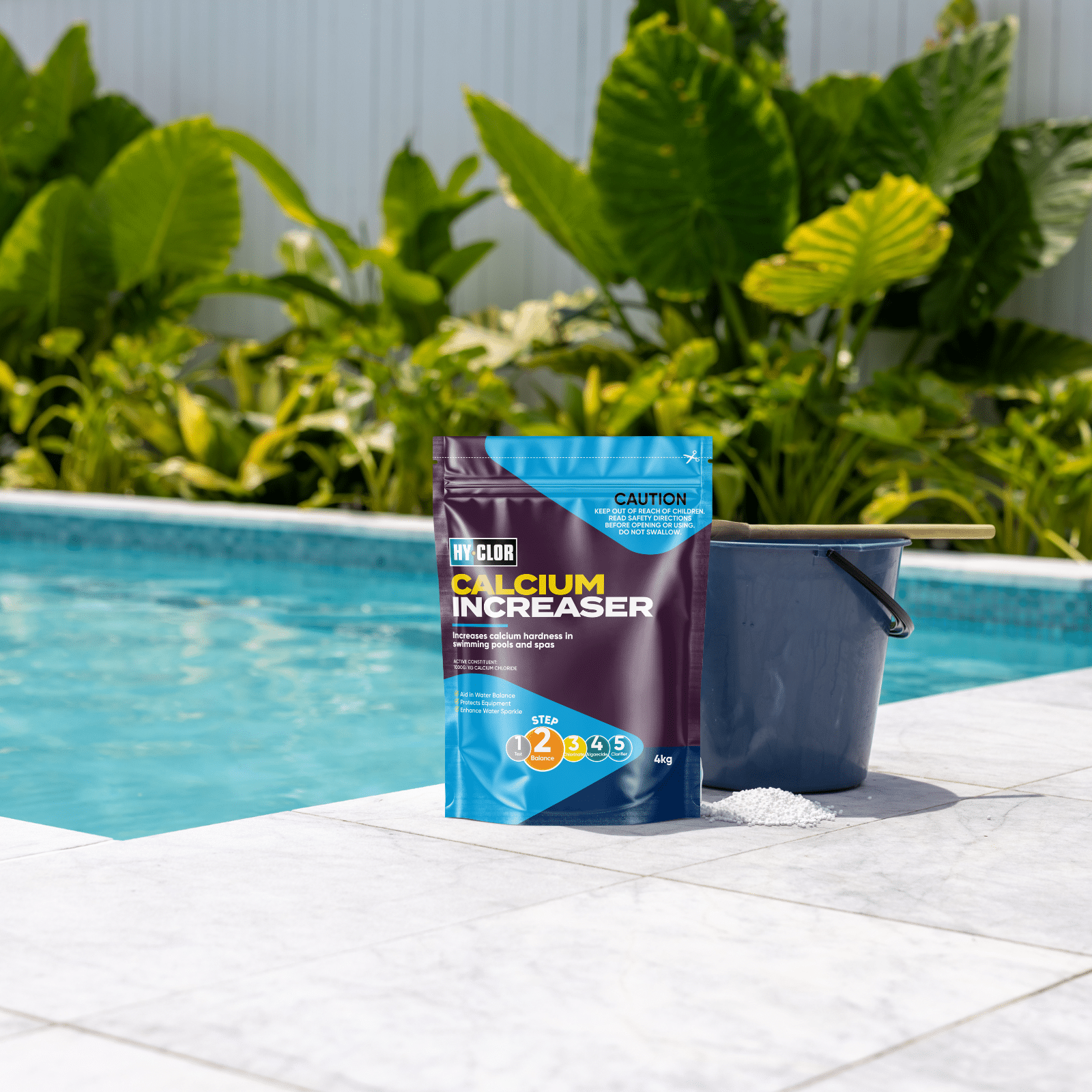What is Calcium Hardness?
Calcium refers to the measure of the total hardness of which is dissolved minerals such as calcium and sodium. For most pools, the calcium hardness level should be between 200-400ppm and for spas between 150-250. Calcium can also be explained as how ‘soft’ or ‘hard’ the water is. Calcium levels are important to your pool and spa because it provides structural health of the pool itself.
How is it added?
Calcium hardness can easily be raised by added calcium chloride which will come as a flaky, granular form. You can add calcium by dissolving it in a bucket of water and broadcast into the water. When calcium chloride is added to water it will naturally heat up so make sure to keep it away from your skin. Another way to add calcium to your water is to add the required amount into your pool scoop and slowly pull through the water until there is no residue left.
Effects of unbalanced calcium levels?
Low Calcium levels may cause:
- Leaching of concrete pool surface
- Damage to tile grout
- Etching of plaster
High calcium levels may cause:
- Damage to pool equipment
- Cloudy water
- Rough feeling surface
- Clogged piping
So there you go, now you know what calcium does. If you need extra help, do not hesitate to give us a call on 1800 625 123 for advice on what products are best suited to your pool needs. clear phone cases are the perfect choice for those who want to showcase the sleek design of their phones. Our collection offers a variety of styles and protection levels to suit every need. Whether you prefer a simple transparent case or one with added features like shock absorption, we have you covered. With our clear phone cases, your phone stays protected while still looking stylish. Choose your perfect case today and let your phone shine.



